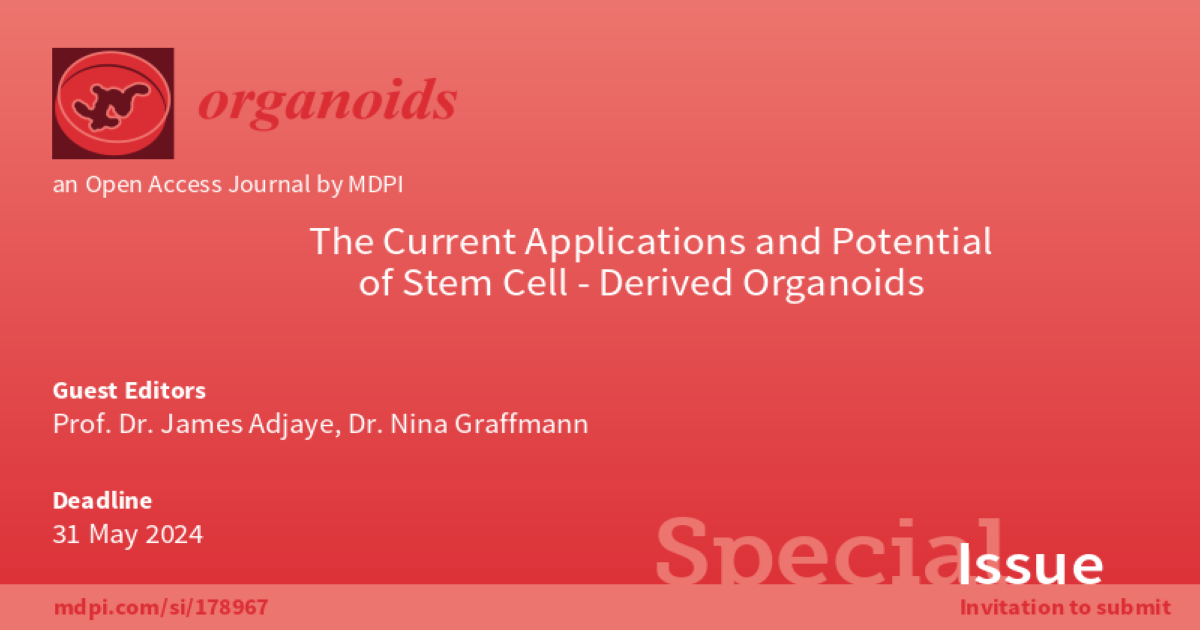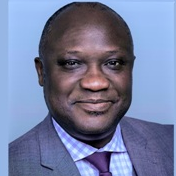The Current Applications and Potential of Stem Cell-Derived Organoids
A special issue of Organoids (ISSN 2674-1172).
Deadline for manuscript submissions: 31 May 2024 | Viewed by 343

Special Issue Editors
Interests: iPSC-based disease modelling; Alzheimer's disease; Nijmegen breakage syndrome; steatosis patients; acute and chronic kidney injury
Special Issues, Collections and Topics in MDPI journals
Interests: pluripotent stem cells; in vitro differentiation; hepatocytes; non alcoholic fatty liver disease; epigenetics
Special Issues, Collections and Topics in MDPI journals
Special Issue Information
Dear Colleagues,
In addition to therapy, in vitro differentiated cells are currently used for drug testing, development, and disease modeling to give valuable insights into underlying mechanisms. Pluripotent stem cell (PSC)-derived 3D organoids are composed of distinct cell types characteristic within the organ under investigation and adopt specific organ-related structure, thus further increasing their maturity and utility compared to 2D cultured cells. Furthermore, the culturing of organoids employing organ-on-a-chip systems has added an additional level of sophistication and enhancement, thus enabling investigations at near-physiological levels.
Methodologies to attempt to create human 3D models from PSCs have been pursued since the late 2000s, with a breakthrough being achieved more recently with the generation of brain organoids. Tissue-specific organoids derived from PSCs are self-organizing structures which recapitulate with considerable accuracy the temporal developmental trajectory similar to fetal development. Notably, not only does the cyto-architecture of the organoids mimic aspects of the tissue-specific organ, but it also shares similar epigenetic and transcriptional programs. The exciting advances in the PSC-derived organoid field have opened up new avenues and tools for obtaining a better understanding of human development. However, organoid technology is still in an early phase of development, facing several challenges that limit their utility, and further optimization of the existing models is required. New robust and standardized protocols of differentiation and maturation of organoids, with increased cellular complexity while maintaining reproducibility, are needed. A combination of refined organoids systems with technological advances in the “-omics” methodologies and genome editing tools will increase our knowledge of healthy human development.
In this Special Issue, we invite researchers to contribute original research articles, comprehensive reviews, and communications on all aspects related to the utility of tissue-specific organoids as experimental systems for studying a normal healthy development and molecular mechanisms underlying diseases, toxicology and drug screening.
You may choose our Joint Special Issue in Cells.
Prof. Dr. James Adjaye
Dr. Nina Graffmann
Guest Editors
Manuscript Submission Information
Manuscripts should be submitted online at www.mdpi.com by registering and logging in to this website. Once you are registered, click here to go to the submission form. Manuscripts can be submitted until the deadline. All submissions that pass pre-check are peer-reviewed. Accepted papers will be published continuously in the journal (as soon as accepted) and will be listed together on the special issue website. Research articles, review articles as well as short communications are invited. For planned papers, a title and short abstract (about 100 words) can be sent to the Editorial Office for announcement on this website.
Submitted manuscripts should not have been published previously, nor be under consideration for publication elsewhere (except conference proceedings papers). All manuscripts are thoroughly refereed through a single-blind peer-review process. A guide for authors and other relevant information for submission of manuscripts is available on the Instructions for Authors page. Organoids is an international peer-reviewed open access quarterly journal published by MDPI.
Please visit the Instructions for Authors page before submitting a manuscript. The Article Processing Charge (APC) for publication in this open access journal is 1000 CHF (Swiss Francs). Submitted papers should be well formatted and use good English. Authors may use MDPI's English editing service prior to publication or during author revisions.
Keywords
- organoids
- stem cell-derived organoids
- stem cells
- pluripotent stem cells
- iPSCs
- organ-on-a-chip
- disease modelling
- cellular therapeutics
- regenerative medicine




